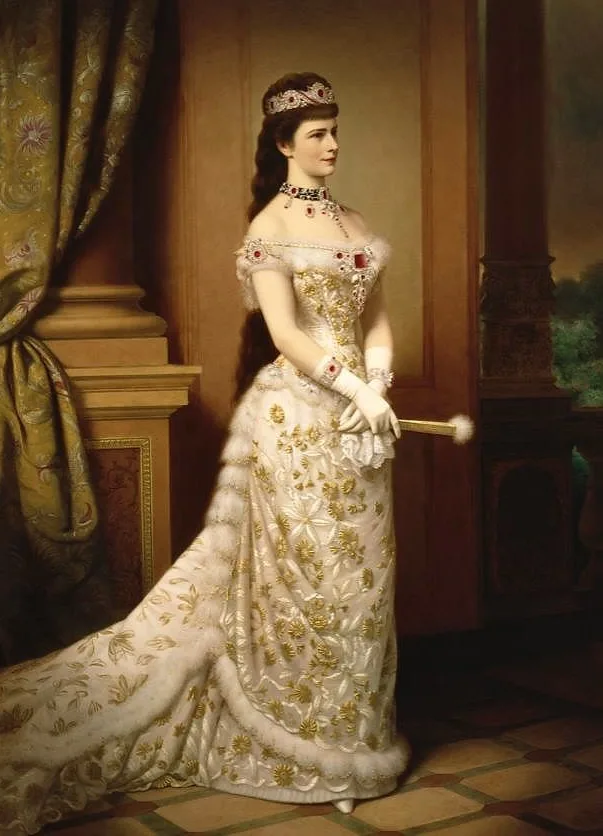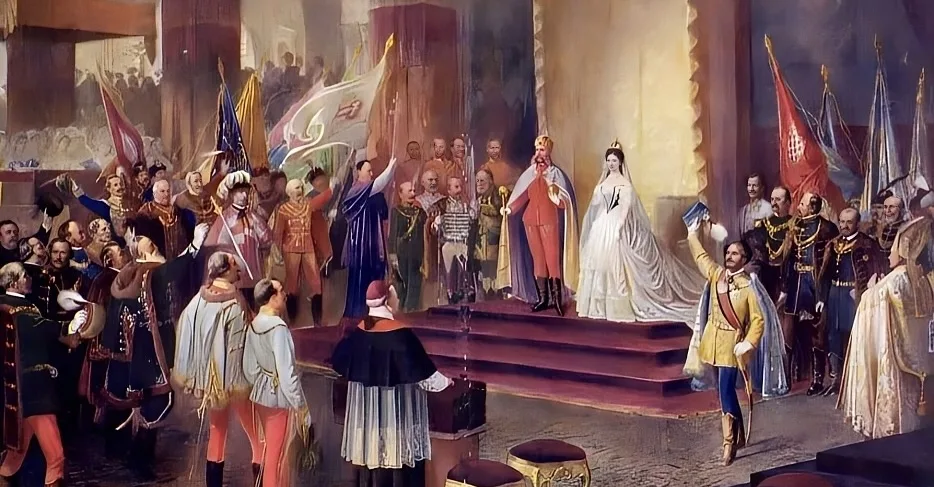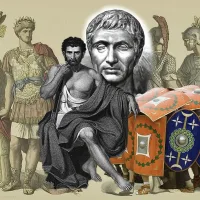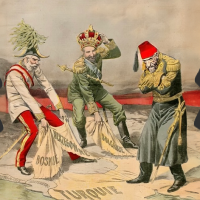Empress Elisabeth of Austria, affectionately known as Sisi, remains an iconic figure in European history. With her raven-black hair, striking beauty, and tragic life, she’s often remembered more for her personal struggles than her political influence.
But what if this beloved empress had played a more active role in the politics of the Austro-Hungarian Empire? How might the trajectory of European history have shifted? Let’s embark on a journey through this reimagined past, exploring both the potential benefits and pitfalls of a politically engaged Sisi.
A Beacon of Progressivism?
European sources often depict Sisi as a free spirit, a woman ahead of her time. If she had been more involved in politics, it’s conceivable that she might have championed progressive reforms. Given her personal experiences and broad travels, she might have advocated for women’s rights, mental health awareness, and perhaps even more autonomy for the various ethnic groups within the empire.
A more politically active Sisi could have acted as a bridge between the conservative Habsburg monarchy and the liberal movements sweeping across Europe. This might have led to a more modernized Austro-Hungarian Empire, potentially delaying or even preventing its eventual disintegration after World War I.
Strengthening Diplomatic Ties
Sisi’s familial connections spanned across European royalty. Her engagement in politics might have fostered stronger diplomatic ties, especially with Bavaria and Hungary. Her deep love for Hungary, in particular, could have played a pivotal role in strengthening the Austro-Hungarian dual monarchy, possibly leading to a more united front in European politics.
A Double-Edged Sword
However, it’s essential to consider the potential downsides of Sisi’s increased political involvement. The empress was known for her sensitivity and bouts of melancholy. The rough-and-tumble world of politics might have exacerbated her mental health struggles, leading to a less stable monarchy.
Moreover, while her progressive ideas might resonate with us today, they could have been met with resistance in her time. A more politically active Sisi might have faced opposition not just from conservative elements within the empire but also from her husband, Emperor Franz Joseph I. This could have led to internal strife, weakening the empire’s position on the global stage.

The Delicate Balance of Power
Some historians argue that Sisi’s lack of political involvement was a strategic choice. By staying out of politics, she maintained a delicate balance of power, allowing her husband to rule unchallenged. If she had taken a more active role, it might have upset this balance, leading to potential power struggles and further destabilizing the empire.
Furthermore, the Austro-Hungarian Empire was a complex web of ethnicities, languages, and cultures. Even with the best intentions, Sisi’s involvement might have inadvertently favored one group over another, leading to increased tensions and conflicts.
Conclusion
Empress Elisabeth’s life, filled with both beauty and tragedy, continues to captivate us. Imagining a world where she played a more active role in politics offers a tantalizing “What If” scenario. While it’s tempting to envision a more progressive and united Austro-Hungarian Empire under her influence, it’s equally important to recognize the potential pitfalls and challenges she might have faced.
What do you think would have Empresses Sisi changed? Let us know in the Comments!
Contrary reflections:
Historians Weigh In: Empress Elisabeth (Sisi) in the Political Arena
Empress Elisabeth of Austria, or Sisi, has long been a subject of fascination in European history. While the previous article painted a speculative picture of a politically active Sisi, historians have various opinions on this “What If” scenario. Here’s a closer look at some opposing viewpoints and facts that challenge the earlier narrative.
1. Sisi’s Personal Disposition
Many historians believe that Sisi’s personal disposition might not have been suited for the political arena. Known for her introspective nature, she often sought solace in poetry, travel, and physical fitness. Her frequent absences from Vienna and her bouts of melancholy suggest she might have found the demands of political life overwhelming.
2. The Power Dynamics of the Time
The Austro-Hungarian Empire’s politics in the 19th century were dominated by men. Historians argue that even if Sisi had shown interest in politics, she might have faced significant resistance, not just from conservative elements but also from her own husband, Emperor Franz Joseph I.
3. The Hungarian Question
While Sisi indeed had a deep affection for Hungary, historians point out that her influence was more symbolic than political. Her role in the Austro-Hungarian Compromise of 1867 was limited, and it’s debatable whether a more active political stance would have significantly altered the course of events.
4. The Broader European Context
The late 19th century was a period of significant political upheaval in Europe. Nationalistic movements, colonial ambitions, and the intricate web of alliances meant that the actions of a single individual, even an empress, might have had limited impact on the broader European stage.
5. The Legacy of Empress Elisabeth
Historians often emphasize that Sisi’s lasting legacy is more cultural than political. Her influence on art, fashion, and literature has been profound, and it’s possible that a shift towards politics might have diminished her impact in these areas.
More of → What If? ←
FAQ
1. How might Sisi’s relationships with other European monarchs have influenced her political decisions?
Given Sisi’s familial ties to various European monarchies, her political decisions might have been influenced by these relationships. For instance, her kinship with Queen Victoria could have led to closer ties between the Austro-Hungarian Empire and Britain, potentially altering European alliances.
2. Would Sisi’s passion for travel and exploration have impacted the empire’s foreign policies?
Sisi’s extensive travels exposed her to diverse cultures and perspectives. If she were politically active, she might have advocated for more open and diplomatic foreign policies, possibly fostering better relations with non-European nations and influencing the empire’s colonial ambitions.
3. How would the Catholic Church have reacted to a politically active Sisi, given her known differences with traditional practices?
The Catholic Church held significant power during Sisi’s time. If she had taken a more active political role and pushed for reforms that went against traditional Catholic values, it could have led to tensions between the church and the monarchy, potentially destabilizing the empire’s internal dynamics.
4. Could Sisi’s interest in health and fitness have led to public health reforms in the Austro-Hungarian Empire?
Known for her rigorous fitness routine and interest in health, a politically active Sisi might have championed public health reforms. This could have included better healthcare facilities, promotion of physical fitness, and possibly even early mental health initiatives, given her personal struggles.
5. How might Sisi’s love for the arts have influenced her political choices and shaped the Austro-Hungarian Empire’s culture?
Sisi’s love for the arts, especially poetry and music, might have influenced her political decisions. She could have promoted arts and culture, leading to a renaissance period for the Austro-Hungarian Empire, fostering creativity and potentially making the empire a cultural hub in Europe.
Don’t be shy! Leave your thoughts in the comments below 😉 ↓
This was a delight to read. You show an impressive grasp on this subject! I specialize about Appliances and you…
i think he was just a crazy guy, a victim of his childhood and enviroment
super interesting 🤔
Loved this article, learned a lot!




Leave a Reply